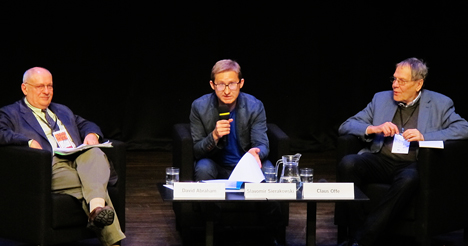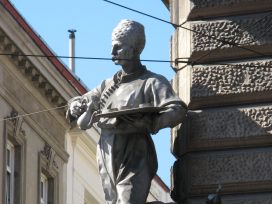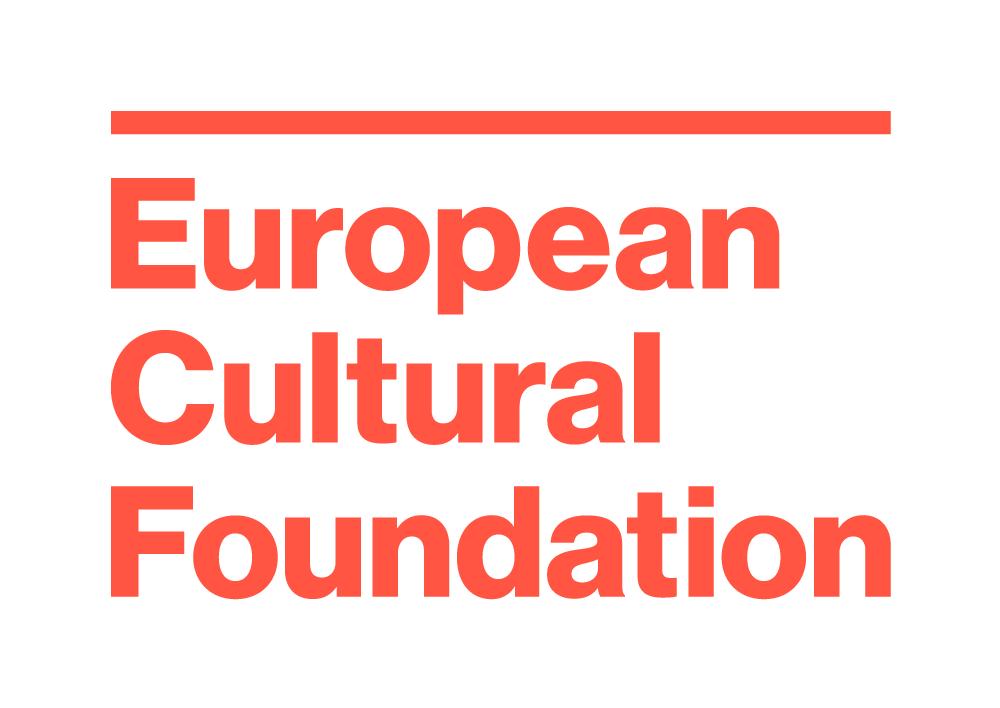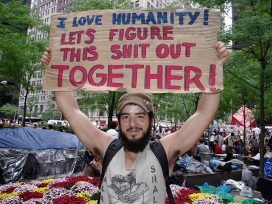Liberalism, populism and the challenges of post-transformation in eastern Europe and beyond
The migration crisis has triggered a shift in politics away from an ethics of ultimate ends to an ethic of responsibility, the question of the ‘we’ to whom we owe solidarity reappearing in pre-political concepts like ethnicity and national culture.
David Abraham: During the months since Angela Merkel became Time magazine’s person of the year in 2015, we saw a shift on her part and among the German political class to the ethic of responsibility, which acknowledges some international legal responsibility to support refugees but considers first the impact on the society receiving a million strangers, the impact on the sending societies and on the transit countries, and the incentive effects for future refugees and migrants. These sorts of calculations are without doubt going to narrow the circle of the “we”, and move us away from the concerns of global justice that were at the centre of liberal thinking for the previous generation, back to a more historic conception of the “we”, “historic” being one of the nicer ways of putting it.

From left to right: David Abraham, Slawomir Sierakowski, Claus Offe. Photo: Nadine Blanchard
Such are the concerns of the political centre. On the Right, we have seen a much less appealing situation. Frauke Petry of the AfD party celebrated her election victory by saying that it is time to revalidate the word völkisch, a word driven into complete disrepute by Nazism and which everyone knows carries a very ethno-nationalist conception of the people. We have seen the return of other words that were long banished to the relative margins – Leitkultur as an obvious norm instead of a conservative agenda, Zusammengehörigkeitsgefühl, or a feeling of belonging together, a concept that Weber developed in a deeply constructivist context but that has since been more closely associated with the kind of nationalism that leads to war. And liberal thinkers were recently unable to answer a question about someone born in Mexico ten miles from the US border, and what possible justification there could be for prohibiting him from enjoying the benefits that the United States offers. The notion of the nation-state as a vehicle of social justice had receded. Now it is coming back with a vengeance.
The immigration crisis has highlighted the difficult topic of historical communities. When we try to take apart what this term means, we come across conceptions that make us less comfortable as liberals. Namely, pre-political things like ethnicity, like Leitkultur, like the intense shared experiences that have slowly disappeared from society along with the mass industrial workplace, which was itself a kind of melting pot. Instead we have developed societies in which difference has been valued as a liberal principle. But now it is coming back in some ways to haunt us as the levels of social solidarity that have helped sustain the welfare state seem to be suffering. The bonds of citizenship seem to weaken in diverse multicultural societies. There seems to be a lot of evidence coming from right, centre and left sociologists, who have made the argument fairly convincingly that the willingness to share declines where there is immigration but intensive integration remains absent. In some ways, the United States has it easier since we have a much weaker welfare state regime. The European experience of demanding more sharing makes for greater vulnerability to such developments. We have seen populist hostility based on an “ethnic privilege” that people in titular nations are unwilling to surrender. This other aspect that the immigration crisis has highlighted is one that we need to take seriously if we are to combat the disaggregation of social solidarity that the welfare state lived from and helped to reinforce. The liberal Left attitude toward integration and immigration needs some revisions.
Claus Offe: I will start with the question of solidarity; that is solidarity as fraternité, the translation that Ulrike Guérot provided during the current conference, or a normative mandate to share. Share with who? With the members of your own family – this is the metaphor; to share with your brothers and sisters. The nation is analogous to the family, both institutions are the only ones that last forever. This is the model of community members who are committed to sharing among themselves.
However, we live in a society where collectivity is not given, it is contested. Whom are we supposed to share with? In our societies, we have a whole portfolio of identities or reference groups that we might want to, or refuse to, share with. Membership is optional and, in accordance with the reference unit that we choose to rely upon and to follow, the interests that we pursue change. We are in a way all multiple personalities. Each of us consists of at least the four persons that Robert Reich once distinguished. Namely, we are workers, consumers, savers or investors, and citizens. Depending on the reference unit we chose for the moment, our interests can be very different and there is no clear hierarchy of what comes first and what is less important. We can also say we belong to a certain generation, we are parents or not parents, we have many other identities to choose from and to practice solidarity for.
This uncertainty concerning relevant collectivities is something that causes confusion and often panic. The liberal model of the individual is self-responsibility, everything that I become is due to my own effort, my strength or weakness. I have to be responsible and I will be held responsible for myself. Yet if we ask, what is the strongest predictor of a person’s life income, the answer is his or her place of birth. That is obviously a variable in human existence that no one can be held responsible for. Similarly, the concept of wellbeing or welfare has been rightly de-individualized. It used to be the case that the welfare of a person was considered a dependent variable of his or her income. It is not so. Many aspects of our welfare are created as a result of conditions for which we are not responsible – these include social security, civic security, infrastructure. The misleading practice of measuring a person’s welfare in terms of their income needs to be overcome. Our wellbeing is at a minimum co-produced. There are many conditions which we have not created ourselves, but which we benefit from, such as the welfare state.
So given this portfolio of identities and reference units, there is a dominant quest for certainty: who are we? The most primitive and elementary answer to that, the smallest common denominator that has become so prominent in today’s politics and movements, is our ethnic belonging. The disorganization of identities leads to the only apparently certain fall back position being ethnic identity, which fuels today’s rightist populist movements and politics. And these movements and politics are highly exclusivist. Solidarity is practiced among people who belong to the same ethnic identity and is denied to everyone else.
The problem is, what is the right collectivity? One tentative answer that I want to briefly discuss here is that we should forget about traditional identities. To answer the question in a quasi-functionalist way, I say that the reference community that we all share and owe solidarity to comprises all those who depend on us and all those on whom we depend. It’s about interdependency rather than a given identity. The principle that applies to those communities is that your wellbeing makes me better off, therefore, I have rational reasons to contribute to your wellbeing as well.
What used to be accomplished through the social democratic and, in a broad sense, also Christian democratic welfare state is now, according to the propaganda and proposals of the populist Right, to be accomplished not through state power, but through state borders. State borders are perceived as a protective device against the inflow of various things: foreign goods, foreign Gods, foreign people, foreign investment, foreign authority and foreign information. All these things are to be kept out through the strengthening of borders, through the building of fences, the establishment of a collective identity and solidarity that is fenced in and protected from outsiders. It feels good perhaps for a while, but we are beyond the point where the retreat to ethnic national identity is not in any way promising in the long-term, because nations within the EU and far beyond are not independent. They are interdependent.
Slawomir Sierakowski: What is so sustainable about nationalism that means it hasn’t gone through a post-ideological turn like all the other ideologies did? Any other ideology, any other concept exists only in a post-ideological form; a postmodern distance prevails. It is not really easy to be a fanatic in the West at the moment. Look at Trump. Trump is not motivated by ideology and this is why he may well create a media concern rather than a radical social movement to begin with. But nationalism still exists in this old-school form. Assuming you agree with me, why is it so?
David Abraham: I think that it is probably true that ethnic nationalism is a kind of atavistic fall back that is always available. Identity is not something that I can randomly choose as I wish. I can’t choose to be a male, an American or an investor on a random basis. There are social conditions that make some things possible and other things not possible. The fact is that we do live in ethnic-historical communities, they are not pure inventions, they were created as political entities but the ethnic-historical reality is there and it seems to me that we can’t ignore this. And that is why immigrants will shape the future of a country, but they are getting on board a boat that has already come from somewhere and has been sailing for a long time. They can help determine where it will sale in the future. It is a contingent and open historical formulation, but we cannot ignore that it is a historical formulation. Class was a very useful universalist formulation as was constitutional patriotism, and they were compatible with the universal worker who increasingly represented the overwhelming majority of society. But if we acknowledge the twilight of social democracy, we also have to take into account the twilight of those universalist identities that accompanied it and work with things that are not just atavistic but were there all along.
Claus Offe: We need to explain why ethnicity is so dominant as a category of collective action and negative collective action. That is, collective action against or to the disadvantage of the non-belonging. We have a choice. We can act as citizens rather than as members of an ethnically defined community. We can act as workers, although we heard this morning that only 15 per cent of people in Britain count themselves as members of the working class. So there is a deep confusion and often panic about what we mean by “we”. Nothing is given here. In the United States, people like us describe ourselves as Europeans rather than as members of a nation-state within the European Union. Also, being a migrant is a transitory phenomenon and it is only a matter of time before you and the host society start feeling that you are already part of the host society. We have to find an explanation as to why the category of migrant, which is so exclusivist, dangerous and conflictual, has become so dominant and what we can do against it becoming even more dominant.
Slawomir Sierakowski: People elect politicians like Trump because they are loosing the feeling of being at home, of being part of a homogenous society that once provided people with some sense of certainty.
David Abraham: Crisis leads people to want to sharpen the line between inside and outside. Crisis leads us to push someone or more people outside. And it is not just Europe, the United States certainly has a cyclical record of anti-immigrant sentiment, despite being an immigration country. I wouldn’t put the emphasis here so much on immigration as on integration. Previously, we put immigrants to work in mines and steel mills and the integration process took place around the labour movement, around the homogenizing process that turns them into citizens. Today it is much more difficult. Merkel soon realized that the new arrivals are mostly uprooted peasants who can’t solve Germany’s workforce problems any more. In the United States, the “market” itself resolves such issues.
Slawomir Sierakowski: Brexit began when immigrants came and didn’t create enclaves like Pakistanis or Indians used to. Poles came and they are everywhere. Maybe it is a question of homogeneity. Maybe we made a mistake in thinking that something like an immigrant society existed before.
Claus Offe: We can overcome the dangerous and destructive movements based on ethnic identity by building the right institutions. The nation-state is all-important to the willingness of people to pay taxes. In Germany, we are quite willing to subsidize Bavarian dairy farmers through our taxes or higher prices. We know that these farmers are more or less part of our community, we have visited them. But when it comes to Spanish olive growers, the sense of solidarity or the willingness to share is much reduced. However, if we had a European minister of finance with legitimate powers of taxation, then the cognitive horizon of people who benefit from funds created through this taxation and pay taxes would be quite different. So it all depends on the institutional setup, rather than history and an ingrained sense of fellowship and belonging together. This setup is flexible and the reference unit can also extend beyond the European Union. Yet this can be ignored in the absence of institutions that regulate our consumption from the perspective of its long-term and long-distance effects (when it comes to, for example, the relation between western consumption of cotton goods and soil erosion in Uzbekistan). This is what allows us to fail in our duties of solidarity vis-a-vis the people affected by our negative externalities. So it’s all a matter of building institutions, rather than traditional identities.
David Abraham: It is also a matter of obtaining democratic legitimacy for those institutions and that has so far proven to be a rather a significant problem.
Slawomir Sierakowski: In Poland we used to have two schools when it came to explaining populism. On the Left, we used to think that the rise of populism was linked to the costs of neoliberalism. Closer to the centre, right-wing populism was explained as simply being nationalist, in accordance with what was considered something of a “genetic” nationalism. Many people are now less convinced by arguments based on structural economic reasons alone. But even if the West is not about to collapse right away, those structural reasons will stay with us. We have known perfectly well for years about rising inequality and other such problems, but we do nothing about them. So how to explain the rise of populism in 2016 in the West?
Claus Offe: There is a big debate as to whether it is a residue of cultural wars or an outcome of economic precariousness and the consequences of globalization. Are the right-wing populists globalization losers? The evidence that I have seen over the last year is negative. It is a mix of cultural wars and precariousness and losing in the process of globalization. We can also say that it is the consequence of the disappearance of a welfare state and social democracy. We don’t yet have a full analysis of the phenomenon, but what we do know is that it is changing not just societies and their party systems and their modes of representation and public culture and the realization of liberal rights, but also international relations in a very serious sense, with dangerous and destructive implications.
Conclusion
One year on since the migration crisis, politics has shifted away from the ethics of ultimate ends to the ethic of responsibility. The question of the “we” to whom we owe solidarity has reappeared in pre-political concepts like ethnicity, Leitkultur and shared experience. The identity of the working-class has faded, leaving a space for national identity filled by right-wing populism. One way out might be to establish new global institutions which base solidarity on interdependency – we share with and owe solidarity to all those who depend on us and all those on whom we depend. Yet, the problem of the democratic legitimacy of such institutions still requires further discussion.
This text is based on a panel discussion held at the 27th European Meeting of Cultural Journals / 10th Conference on Solidarity in Gdańsk, 4-6 November 2016. Summary by Vojtech Bohác.
The conference was organized jointly by Eurozine, the Institute for Human Sciences in Vienna, the European Solidarity Centre in Gdańsk and Res Publica Foundation.
In partnership with:
Erste Foundation and Mayor of Gdańsk
Co-funded by:
Ministry of Foreign Affairs, Republic of Poland
Foundation for Polish-German Cooperation
Connected action for the Commons, European Cultural Foundation
Project co-financed by the Ministry of Foreign Affairs of the Republic of Poland
Published 16 December 2016
Original in English
First published by Original in ERes Publica Nowa, Special Edition "Mobilizing for the Commons" 2016 and Eurozine (English version)
Contributed by Res Public Nowa © Eurozine
PDF/PRINTIn collaboration with
In focal points
- Disintegration or revival?
- Mobilizing law for solidarity
- Solidarity after Machiavelli: An interview with Ira Katznelson
- Liberalism, populism and the challenges of post-transformation in eastern Europe and beyond
- The limits of solidarity
- On the borders of solidarity
- The crisis of neoliberalism in Europe
- Utopian dreams beyond the border
- The politics of nature in the Anthropocene
- Strangers when we meet: Identity and solidarity
Newsletter
Subscribe to know what’s worth thinking about.
Related Articles

Vienna’s hosting of Ukrainian artists and writers recalls the days of the fin de siècle, when the city was a magnet for intellectuals seeking freedom from Tsarism. But despite strong historical affinities, subtle barriers to solidarity with the Ukrainian exiles remain.

Prisoners of conscience
A conversation with Myroslav Marynovych
Defenders of human rights often face high stakes. When the Ukrainian Helsinki Group openly challenged the Soviet Union in the name of the 1975 Universal Declaration of Human Rights, young dissidents soon became political prisoners. The price for being a non-conformist was steep yet encouraged solidarity, paving the way to Euromaidan.






